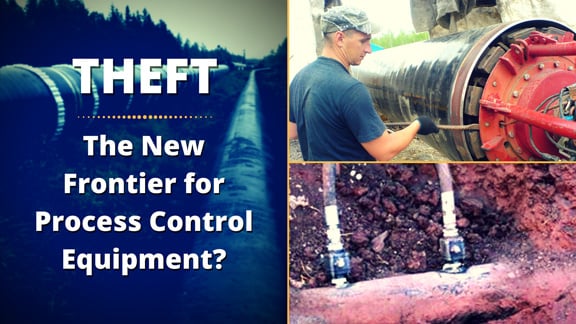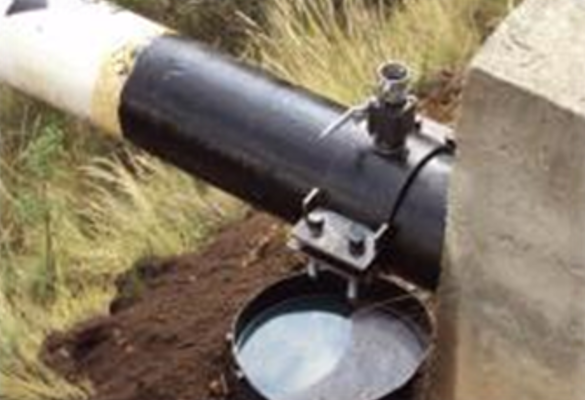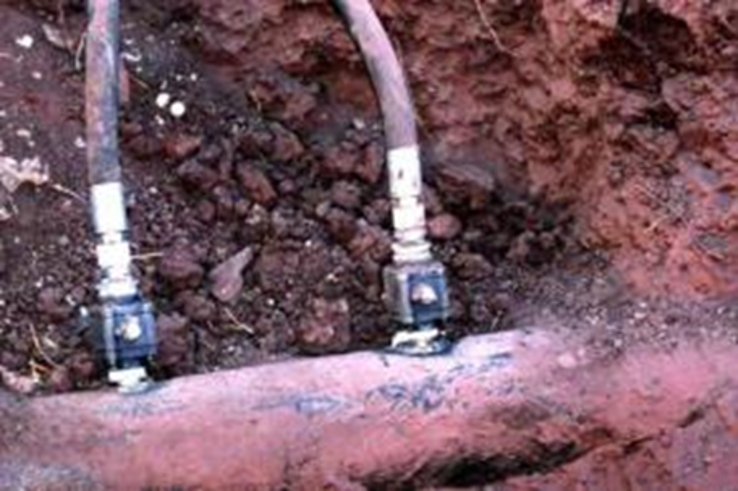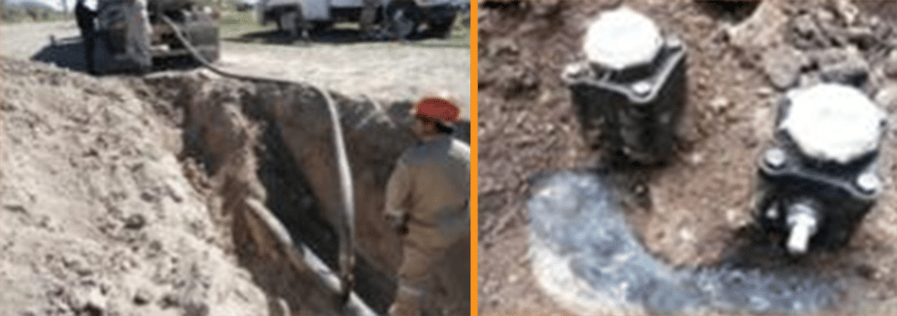This guest blog post is part of a series written by Edward J. Farmer, PE, author of the new ISA book Detecting Leaks in Pipelines. To read all the posts in this series, scroll to the bottom of this post for the link archive.
In the mid-1980s, I demonstrated an early-stage leak detection product to a Latin American company before extensive field testing had been completed. The test section ran from a refinery over some hills, into a storage and distribution point, 80 kilometers or so.
Monitoring was set up at the refinery and leaks were simulated near the center and at the far end of the line. Simulation involved opening a valve into some storage: a vacuum truck in the center and a storage tank at the end. Detection was reliable, but events not associated with known tests were also alarmed. An impression was being created that the system was not differentiating between leak conditions and noise. A somewhat animated discussion developed among the official observers and monitoring was curtailed for the day.

The next day, one of our proponents announced that the line had just been flown and an area discovered in which a road had been cut into the hillside adequate for large tanker trucks to reach the pipeline. A queue of tanker trucks was seen waiting to fill at an ad hoc and unmetered service point.
This was not just theft, it was planned, organized, and even timed to get the desired product into the appropriate truck, all without detection. This operation had apparently been routine for years and was well-known to the nearby diesel-consuming businesses.
 Most taps are not maintained. Care is not taken to prevent environmental damage which often appears as unusual degradation in the area around the taps. That used to be the primary clue that a theft operation has been under way. Automatic monitoring, of course, enables a team to respond directly to the theft site while the theft is taking place.
Most taps are not maintained. Care is not taken to prevent environmental damage which often appears as unusual degradation in the area around the taps. That used to be the primary clue that a theft operation has been under way. Automatic monitoring, of course, enables a team to respond directly to the theft site while the theft is taking place.
One can only wonder how such an egregious difference in produced vs. received diesel could have gone undetected under these circumstances for so long. In fact, many aspects of the operation were hard to understand. It was made clear to me that the details were none of my business, but after a few months of operator-internal issues our equipment was purchased to monitor the pipeline.
Anti-theft solution benefits
Reduced theft would pay for the system that was deployed in perhaps a few hours, a day or two at the most. As it turned out, though, anti-theft equipment, regardless of payout, was not a simple sale. There were often “other issues” that had to be settled.
Years later, on a project in Southeast Asia, startup of a system monitoring an investor-funded and operated pipeline detected and located leaks at the same site over and over again. Apparently the builder was intimidated into “not noticing” line losses, and communication channels were “unreliable” with a location necessary to produce complete flow balance reports. One could write a much longer story about life inside and outside of security fences, trusting people, damage that can result from inept line penetration, and all sorts of stuff like that.
 Some taps are small, simple, and frighteningly fragile. An accidental footstep can initiate leakage that could go on for hours or days.
Some taps are small, simple, and frighteningly fragile. An accidental footstep can initiate leakage that could go on for hours or days.
All of this is easily detected with modern leak detection and was detectable by properly operated equipment of the day. Loss of a fraction of a percent of line flow rate can be detected and located within meters in very short periods of time.
In a contemporary anti-theft operation for a motivated operator, 44 leakage events were detected over a week-long period - resulting in the arrest of most of the perpetrators. This effort, according to the operator, reduced the worst theft environment in their system to being theft-free. Again, a pittance cost was amortized in minutes or, at the most, hours.
Top pipeline theft countries
One can wonder: Does this sort of thing really happen? It depends on where you are. Arranged by theft volume the top five theft countries are Nigeria, Mexico, Iraq, Russia, and Indonesia. Theft in these areas is generally thought to be increasing. One study concluded that theft was increasing at about 30 percent per year.
When the size of the operations in these areas is considered it is likely that more oil is being lost to theft than all forms of leakage or accidents. In at least one country it has been estimated that the value of oil stolen from the system actually exceeds that of oil sold. I don’t know that any study has produced a careful and detailed audit of this situation over time but even short-term, operations-focused investigations generally show a huge, preventable, and extremely expensive problem that discourages investment.
 Sometimes substantial effort goes into establishing and operating invasive and hazardous taps. The excavation and piping facilitates extraction and use of the fluid but generally at the expense of people and industry along the pipeline. There are stories going back decades of massive damage caused by such clandestine operations.
Sometimes substantial effort goes into establishing and operating invasive and hazardous taps. The excavation and piping facilitates extraction and use of the fluid but generally at the expense of people and industry along the pipeline. There are stories going back decades of massive damage caused by such clandestine operations.
Thieves have become much smarter over the years. In the past, a thief would hot-tap a line and use conventional, often exposed, piping to fill tanker trucks which would then take the product to market. Now, the business end of theft seems to have become far more subtle, and the technical aspects far more complex.
Compromised process control equipment
For example, there are now instances of process control equipment being used to inject water into a pipeline downstream of the extraction point so that operation appears normal during the theft withdrawal. All of this, of course, can be detected and located with appropriate monitoring.
It has been suggested that proper monitoring has sometimes been limited in order to facilitate theft, and sometimes implemented to control it, or at least modify the business operations involved. I really don’t know; most of the information about such things is anecdotal.
Nonetheless, if pipeline accident rates were increasing 30 percent per year there would be motivation and action. Theft operations can certainly be safety issues, but considering the amount and growth rate of product loss it is also becoming a factor in successful and profitable operation. It is thus worthy of concern as a significant operating issue.
How to Optimize Pipeline Leak Detection: Focus on Design, Equipment and Insightful Operating Practices
What You Can Learn About Pipeline Leaks From Government Statistics
Is Theft the New Frontier for Process Control Equipment?
What Is the Impact of Theft, Accidents, and Natural Losses From Pipelines?
Can Risk Analysis Really Be Reduced to a Simple Procedure?
Do Government Pipeline Regulations Improve Safety?
What Are the Performance Measures for Pipeline Leak Detection?
What Observations Improve Specificity in Pipeline Leak Detection?
Three Decades of Life with Pipeline Leak Detection
How to Test and Validate a Pipeline Leak Detection System
Does Instrument Placement Matter in Dynamic Process Control?
Condition-Dependent Conundrum: How to Obtain Accurate Measurement in the Process Industries
Are Pipeline Leaks Deterministic or Stochastic?
How Differing Conditions Impact the Validity of Industrial Pipeline Monitoring and Leak Detection Assumptions
How Does Heat Transfer Affect Operation of Your Natural Gas or Crude Oil Pipeline?
Why You Must Factor Maintenance Into the Cost of Any Industrial System
Raw Beginnings: The Evolution of Offshore Oil Industry Pipeline Safety
How Long Does It Take to Detect a Leak on an Oil or Gas Pipeline?
Book Excerpt + Author Q&A: Detecting Leaks in Pipelines
About the Author
Edward Farmer has more than 40 years of experience in the “high tech” part of the oil industry. He originally graduated with a bachelor of science degree in electrical engineering from California State University, Chico, where he also completed the master’s program in physical science. Over the years, Edward has designed SCADA hardware and software, practiced and written extensively about process control technology, and has worked extensively in pipeline leak detection. He is the inventor of the Pressure Point Analysis® leak detection system as well as the Locator® high-accuracy, low-bandwidth leak location system. He is a Registered Professional Engineer in five states and has worked on a broad scope of projects worldwide. His work has produced three books, numerous articles, and four patents. Edward has also worked extensively in military communications where he has authored many papers for military publications and participated in the development and evaluation of two radio antennas currently in U.S. inventory. He is a graduate of the U.S. Marine Corps Command and Staff College. He is the owner and president of EFA Technologies, Inc., manufacturer of the LeakNet family of pipeline leak detection products.




